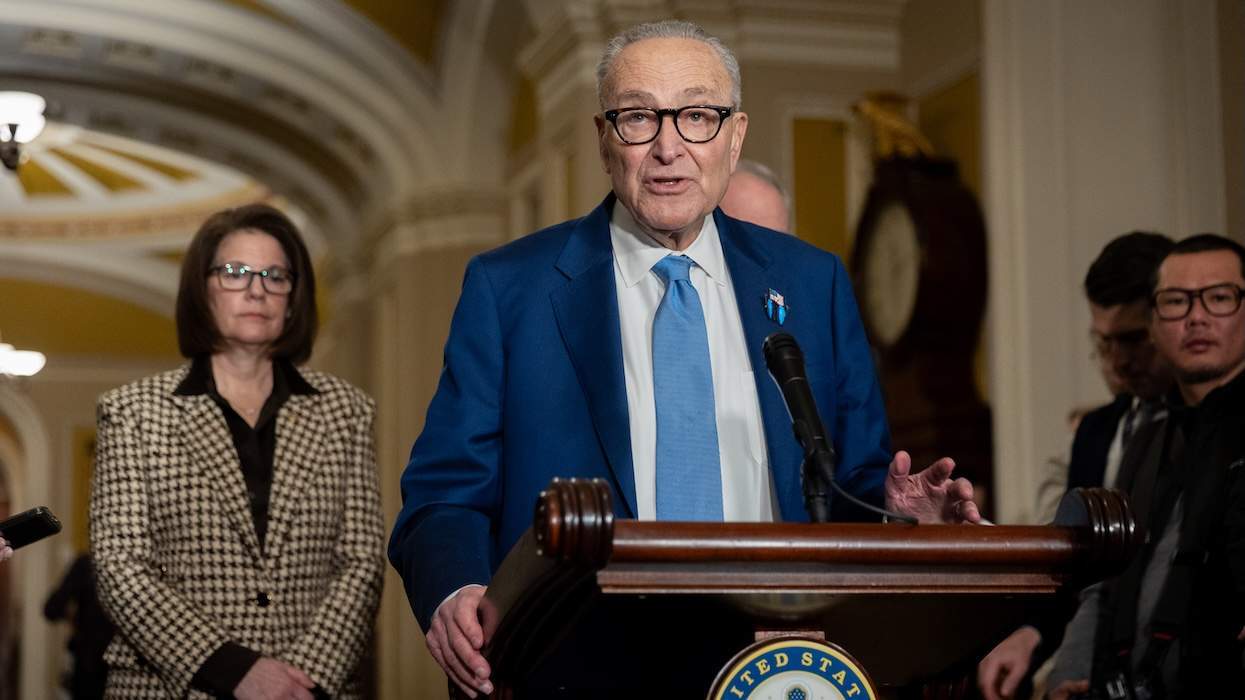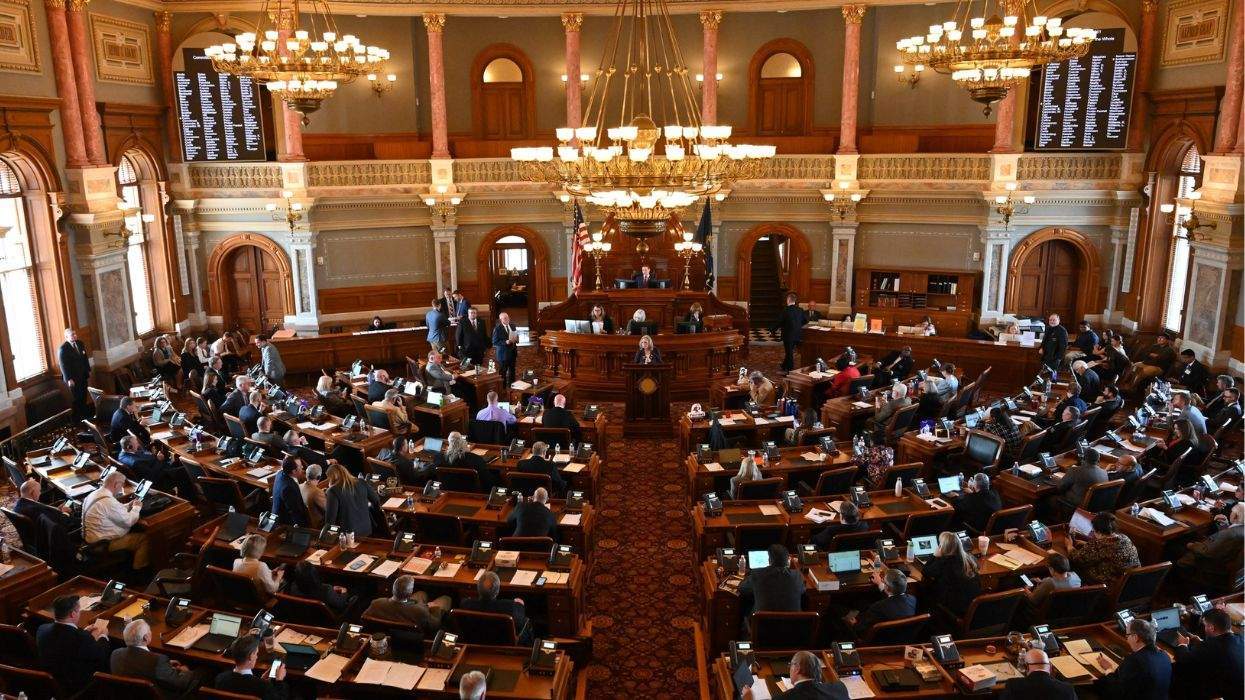Public outrage over $165 million in bonuses for American Insurance Group executives shifted this week to scrutiny of the Obama administration and its chief steward of the economy, Treasury secretary Timothy Geithner.
The magnitude of the deteriorating situation, while still in question, could cripple parts of President Barack Obama's progressive agenda in areas such as health care reform, the environment, and education, not to mention social issue items such as repealing "don't ask, don't tell" and passing employment protections for LGBT folks.
"Clearly, the Obama administration is in a dangerous moment and this whole situation needs to be resolved quickly and successfully," says Mike Lux, a Democratic strategist who served as a special assistant to President Bill Clinton.
While much attention has been paid to whether tackling LGBT issues early on would become a distraction for the new administration, now the economic meltdown could actually smother chances for LGBT gains.
"What you really worry about with something like this is that a siege mentality sets in where everyone in Washington is so focused only on this that there's no air in the room left to do anything else -- that's where we really get hurt," says Richard Socarides, an attorney in Manhattan who served as a senior adviser to President Bill Clinton on LGBT issues, among other things.
Anyone who wonders how a "siege mentality" might set in had only to witness one press briefing this week where the White House Press Corps clamped its jaws around the AIG issue like a gnarled chew toy, with press secretary Robert Gibbs tugging at the opposite end.
President Obama has enjoyed high approval ratings that showed their first signs of strain this week when they slipped from 64% to 59% in a Pew Research Center poll. The situation went from bad to worse after questions arose about Secretary Geithner's knowledge of the bonuses and his failure to block them, and some congressional Republicans began calling for his resignation.
The downward turn underscores an argument that Socarides and some other LGBT advocates have been making -- that now is the time to press for pro-gay reforms, not later. "It's right now that's the best time to get the more controversial things done," he says. The president had an enormous reservoir of good will following the election, Socarides argues, and people are distracted by the economy and the wars.
"I still think it would be a time to tackle 'don't ask, don't tell,'" he adds. "There is definitely a risk in all of this that if AIG stands out as an early defining moment that we'll spend the next 12-24 months digging our way out of this."
LGBT people also have more at stake here than the LGBT-specific legislation that hangs in the balance. Key issues like health care reform could take a hit, limiting just how far President Obama can overhaul the system. Since health insurance distribution is tied to employment and most companies still don't provide domestic-partner benefits, gays and lesbians experience greater barriers to access.
"The overwhelming impact of the assumption of universal heterosexuality has led to disproportionate inequality for LGBT people when it comes to accessing health care," says Kenneth Sherrill, a political science professor at Hunter College who specializes in LGBT issues. Sherrill also notes that many insurers deem HIV/AIDS a preexisting condition by which they may exclude clients from coverage. "So in that sense, meaningful health care reform is our issue too," Sherrill observes.
But Sherrill also floats an alternative theory -- the AIG scandal could so badly damage the reputation of insurance companies that it undermines their ability to curb health reform. The insurance industry was one of many powerful interest groups that helped block the Clintons' attempt to revamp the country's health care system.
"Perhaps the net effect of this could be to embolden our leadership at a time when our enemies are weakened," Sherrill poses.
No one is sure just how messy the AIG cleanup will get and whether it could, indeed, debilitate the president's agenda.
"We have yet to see whether AIG is something that can be contained," Sherrill says, adding that people have called for Geithner's removal before. And even if Geithner made an exit, Sherrill says, "My sense is that no one is indispensable. If he gets replaced, the government still goes on."
But White House veterans sense the danger from administrations past.
Lux, who recently authored a book called The Progressive Revolution: How the Best in America Came to Be , notes that President Lyndon B. Johnson pushed an enormous amount of legislation through in the first few years of his administration only to have his presidency get bogged down in Vietnam. But Johnson's not the only president whose priorities crumbled under the weight of greater forces.
"I think you could argue in Clinton's term that the mishandling of gays in the military slowed them down and took away momentum on other things they were trying to do," Lux says. "That hurt their ability to get off to a good start on health care and everything else."















